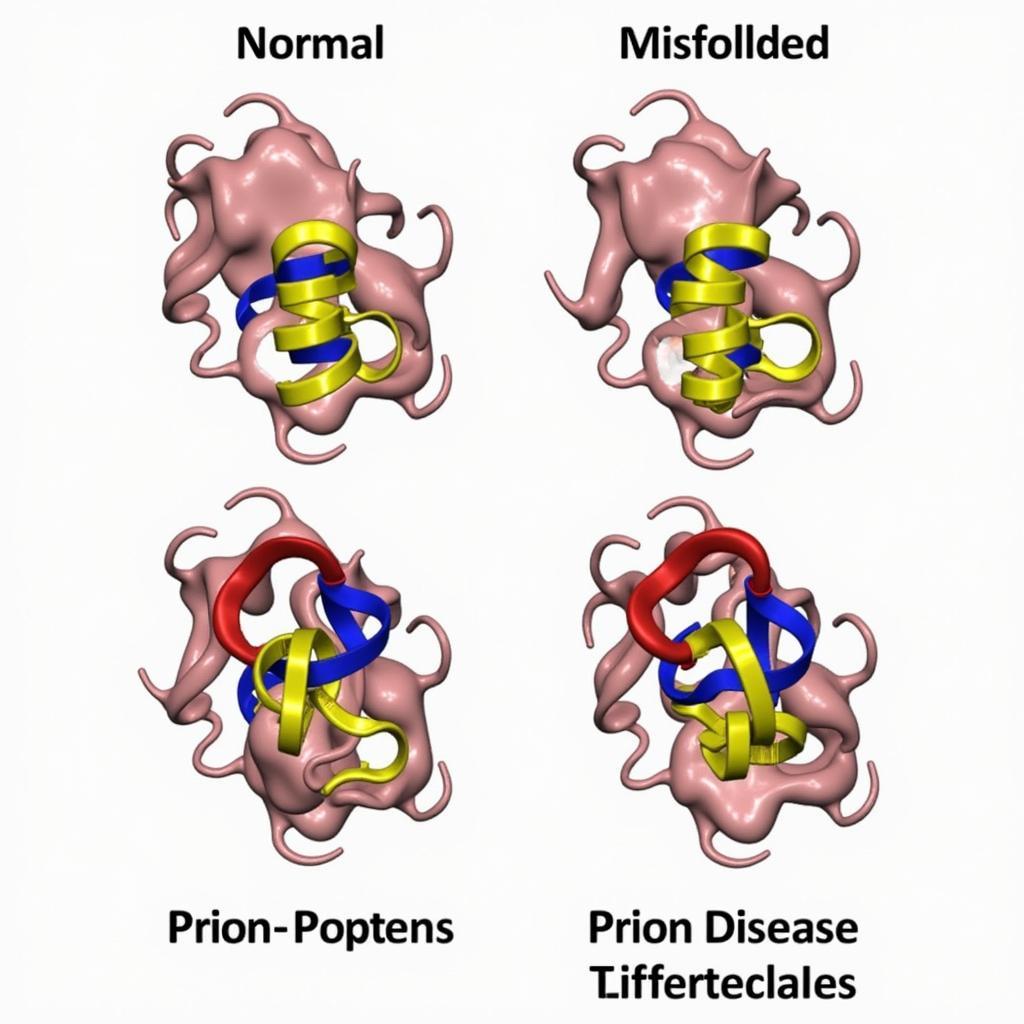Prion diseases are a group of rare, fatal neurodegenerative disorders that affect both humans and animals. Unlike other neurodegenerative diseases such as Alzheimer’s or Parkinson’s, prion diseases are unique because they are caused by misfolded proteins called prions. These misfolded proteins have the ability to spread and convert normal proteins in the brain into the abnormal prion form, leading to progressive brain damage and ultimately, death.
Understanding Prion Diseases: Causes, Symptoms, and Types
Prion diseases can manifest in various forms, each with its own set of symptoms and progression rate. However, a common thread among all prion diseases is the accumulation of misfolded prion proteins in the brain, disrupting normal brain function and causing irreversible damage.
Some of the most common types of prion diseases include:
- Creutzfeldt-Jakob Disease (CJD): This is the most common type of prion disease in humans, accounting for approximately 85% of all cases. CJD typically affects older adults and causes rapid mental deterioration, dementia, and movement problems.
- Variant Creutzfeldt-Jakob Disease (vCJD): This rare form of CJD is believed to be caused by consuming contaminated beef from cattle infected with bovine spongiform encephalopathy (BSE), commonly known as “mad cow disease.”
- Gerstmann-Straussler-Scheinker Syndrome (GSS): This inherited prion disease typically affects individuals in their 40s and 50s, causing progressive ataxia (loss of coordination), dementia, and other neurological problems.
- Fatal Familial Insomnia (FFI): Another rare inherited prion disease, FFI affects the thalamus, a part of the brain responsible for sleep regulation. As its name suggests, FFI causes progressive and ultimately fatal insomnia.
The Importance of Prion Disease Research
Prion diseases are currently incurable and fatal, making research in this area critically important. Scientists are working tirelessly to better understand the mechanisms of prion misfolding, transmission, and neurotoxicity.
 Prion Protein Structure
Prion Protein Structure
Key areas of focus in Prion Disease Research include:
- Developing accurate and early diagnostic tests: Diagnosing prion diseases remains challenging due to their rarity and varied symptoms. Research is ongoing to develop more sensitive and specific tests that can detect prion diseases earlier in their course.
- Identifying potential treatments: Currently, there are no effective treatments for prion diseases. Research is exploring various therapeutic strategies, including anti-prion drugs, immunotherapies, and gene therapies, to slow down or halt the progression of the disease.
- Understanding the environmental and genetic factors influencing prion disease susceptibility: While some prion diseases are inherited, others occur sporadically. Research aims to unravel the complex interplay of genetic and environmental factors that contribute to prion disease development.
The Future of Prion Disease Research: Hope on the Horizon
Despite the challenges posed by prion diseases, significant advancements have been made in recent years, offering hope for the development of effective therapies. The discovery of new prion strains, the development of animal models that closely mimic human prion diseases, and the identification of potential drug targets have all contributed to our understanding and potential treatment strategies.
 Prion Disease Research Lab
Prion Disease Research Lab
While a cure for prion diseases may still be years away, the ongoing dedication of scientists worldwide offers hope for patients and their families. Continued research is crucial not only to find a cure but also to develop preventive measures and improve the lives of those affected by these devastating diseases.
Frequently Asked Questions about Prion Disease Research
1. How are prion diseases diagnosed?
Diagnosing prion diseases often involves a combination of neurological examinations, brain imaging (MRI, EEG), and cerebrospinal fluid analysis.
2. Are prion diseases contagious?
While extremely rare, prion diseases can be transmitted through contaminated surgical instruments, organ transplantation, or consumption of contaminated meat. However, casual contact with an infected individual does not pose a risk of transmission.
3. What are the latest breakthroughs in prion disease research?
Recent research has focused on developing monoclonal antibodies that target and neutralize prions, offering a promising avenue for future therapies.
4. Are there any lifestyle changes that can reduce the risk of prion diseases?
As the causes of sporadic prion diseases remain largely unknown, there are no proven lifestyle changes that can definitively prevent these diseases.
5. Where can I find more information about prion disease research and support organizations?
Organizations like the Creutzfeldt-Jakob Disease Foundation and the National Prion Disease Pathology Surveillance Center provide valuable resources and support for patients, families, and healthcare professionals.
Need More Information?
For any questions or assistance, please contact us:
Phone: 0904826292
Email: research@gmail.com
Address: No. 31, Alley 142/7, P. Phú Viên, Bồ Đề, Long Biên, Hà Nội, Việt Nam.
Our dedicated team is available 24/7 to assist you.